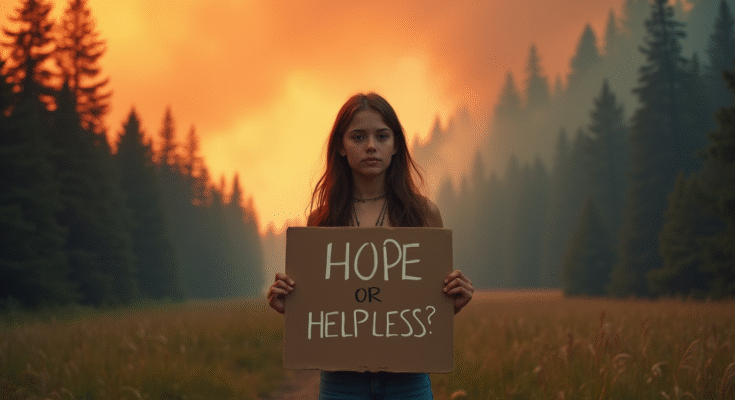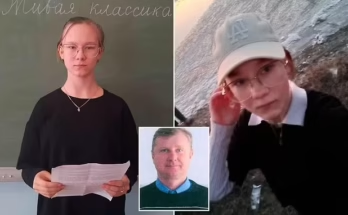What Is Eco-Anxiety?
Eco-anxiety is the long-term worry about environmental disaster—an emotional reaction to the enormous size and seriousness of climate change. It is not a standard medical condition, but is more and more noticed by mental wellness experts as a true and increasing happening. While individuals of all ages can feel it, youthful individuals—especially Generation Z and Millennials—are declaring the greatest levels of anguish connected to the future of the planet.
As the climate crisis deepens, searing wildfires, floods, droughts, and mass extinction events—more youth are feeling the weight of climate grief, helplessness, and guilt in the face of silence and inaction from political and corporate leaders.
Impacts on the Young
For vast numbers of young people, climate change ceases to be only a scientific issue and becomes a personal, existential threat. In another 2021 study by The Lancet involving more than 10,000 youths across 10 countries:

- 59% said they were very worried about climate change.
- 56% believed that humanity was doomed.
- 45% reported that “climate anxiety” affects their lives on a daily basis, impacting sleep and eating habits as well as concentration and socializing.
These numbers show just how much emotional weight this generation is carrying.
Loss of Future Optimism
The most deeply felt impacts of eco-anxiety are on future hope. So many young people are reconsidering very long-term decisions about whether to have children, what careers to pursue, and where they will be living in the long term.
The feeling that planning for the future is uncertain, or irrelevant in a world that might drastically change—unlivable, even—in their lifetime, is becoming more and more prevalent. Some young people described this to me as “pre-traumatic stress disorder,” a stress about impending rather than past trauma.
Emotional Responses: Grief, Anger, Guilt
A more complex web of human emotions shares a tie with eco-anxiety. It is common to find many youngsters feeling grief at the loss of biodiversity and ecosystems, anger at older generations for their inaction, and guilt over their carbon footprints or overconsumption.
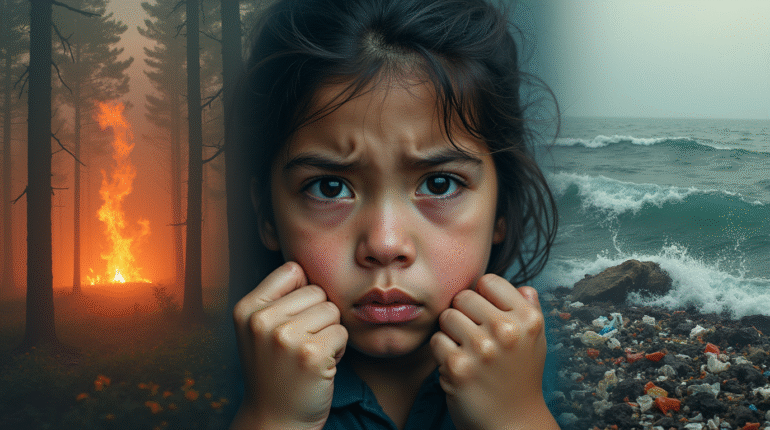
The latter is social media, which brings deforestation, plastic-filled oceans, and melting glaciers regularly to viewers’ attention as imagery of the apocalypse. These Photographs, ‘Heaven and Hell’. Is it Possible to Choose Happiness for Other People?
The Role of Media and Education
While awareness of climate change is crucial, overexposure to negative news, often referred to as “doomscrolling,” can intensify eco-anxiety. Educational systems also contribute: many schools present the climate crisis as urgent and catastrophic, but offer few pathways for empowerment or action.
Without tools for hope and agency, students may internalize climate change as an unstoppable force, fueling a sense of despair rather than motivation.
Coping Strategies: From Despair to Action
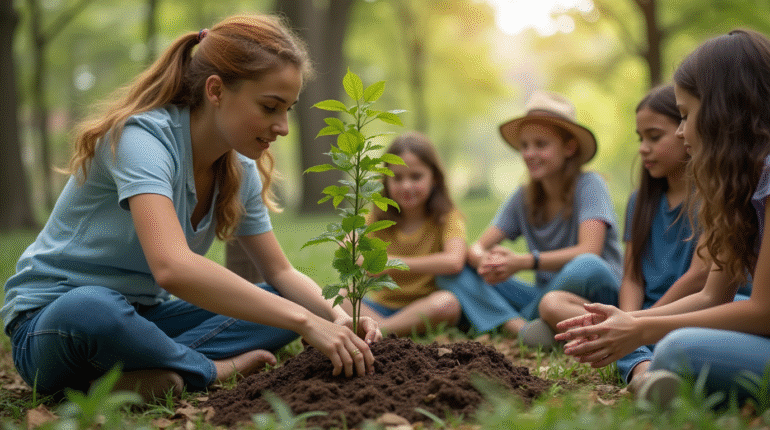
Mental health professionals recommend several strategies to help manage eco-anxiety:
- Acknowledging the feelings rather than suppressing them.
- Connecting with others through climate advocacy groups or support circles.
- Focusing on local actions that create tangible change—planting trees, reducing waste, joining protests.
- Practicing mindfulness and self-care, especially during climate news breaks.
Therapists increasingly encourage a shift from helplessness to what they call “active hope”—recognizing one’s limits while still contributing positively.
Youth-Led Climate Movements as Therapy
Interestingly, activism has become a coping mechanism. Movements like Fridays for Future, Sunrise Movement, and Extinction Rebellion Youth give young people a sense of purpose and solidarity.
By transforming fear into action, these movements help reduce isolation, build community, and foster resilience. For many, organizing climate marches, lobbying for policy change, or engaging in school climate strikes becomes not only political but deeply therapeutic.
The Need for Climate-Aware Mental Health Support
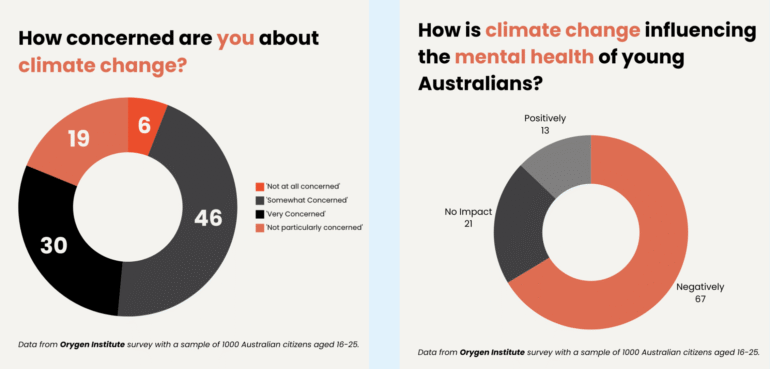
As eco-anxiety becomes more prevalent, mental health professionals and institutions must adapt. Experts are calling for:
- Climate-aware therapy models
- Mental health education in climate curriculums
- Support systems in schools and universities
Countries like Sweden, Canada, and Australia have started integrating eco-anxiety support into public health strategies, but global efforts remain uneven.
Conclusion: Eco-Anxiety as a Rational Response
Eco-anxiety is not a disorder—it’s a rational response to a real and escalating crisis. In fact, many argue it’s a sign of empathy, awareness, and deep care for the Earth. Rather than pathologizing it, society must recognize eco-anxiety as a call to action—an emotional signal that we cannot ignore.
The challenge is not to numb this fear, but to channel it wisely—toward sustainability, justice, and collective healing.
